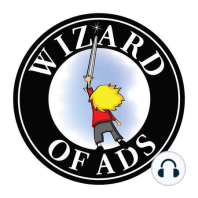2 min listen

The New Language of Effective Ads
The New Language of Effective Ads
ratings:
Length:
8 minutes
Released:
Nov 10, 2008
Format:
Podcast episode
Description
Most women can tell at least one funny story about a tragic first date. In most of these stories, a misguided man spends the entire evening saying,“Here's an example of how wonderful I am…”“Let me tell you what I can do…”“…and that's what makes me special.”Although we’re rarely drawn to people who begin all their sentences with “I,” “Me,” and “My,” this first-person perspective remains central to mainstream advertising.And it’s why most Americans detest mainstream advertising.“At [name of company,] we…”“Voted the number one…”“Why settle for second best?”This outdated language of self-promotion is known as “AdSpeak.”The new language of marketing is the language of Intimacy. Connectedness. Shared values. The sound of one friend talking to another. Intimate ads are believable because they confirm what the customer already knows. The fact that the advertiser knows it as well – and is willing to admit it – is what surprises and impresses the customer. Click. Connection.How to Avoid “AdSpeak” in Your Ads.1. Limit self-reference. Reduce the number of times you refer to your company or your product in your ads. (New York Times bestselling authors Jeffrey and Bryan Eisenberg offer a free, online analysis of ad copy at FutureNowInc.com. Their “We-We Calculator” scores ad copy instantly. Just copy and paste your ad into the text-block and the software does the rest.2. Don’t say it. Lead the customer to say it. Instead of saying, “We’re honest,” say something that only an honest person would say. Let the customer respond, “Wow. That’s honest.”3. Admit the downside. It makes the upside easier to believe. Imagine the impact of a jeweler saying, “A diamond is just a symbol. The important thing is not to forget what it symbolizes.”A behavioral scientist named Desmond Morris wondered why some couples stayed together for a lifetime while other couples divorced. What he found was that couples who stayed together had usually followed similar progressions of intimacy, allowing sufficient time before advancing to the next stage. His theory was that this allowed the couple to more deeply bond during the courtship phase of the relationship. Couples who rushed through these “stages of intimacy” usually didn't form as strong a bond and were far more likely to divorce.WHAT THIS MEANS TO BUSINESS:Customer courtship should begin long before your customer is in the market for what you sell. The customer won “quick and easy” will be lost just as quickly and easily.Let’s look at the 12 Stages of Intimacyas they relate to business:1. Eye to Body* general awareness.In Business: Name Recognition.2. Eye to Eye* each person knows the other has seen them.In Business: Targeted advertising is purchased to reach the customer.3. Voice to Voice* conversation. Can be one sided, or a dialogue.In Business: Your ads are read or heard by the customer.4. Hand to Hand* holding hands. Acknowledgement of possible relationship.In Business: the customer considers visiting your place of business.5. Arm to Shoulder* closer contact than holding hands.In Business: contact is made in person or by phone.6. Arm to Waist* indicates a growing familiarity and comfort level in the...
Released:
Nov 10, 2008
Format:
Podcast episode
Titles in the series (100)
Advertising, Like Reduction Sauce A Monday Morning Memo from The Wizard of Ads by Wizard of Ads Monday Morning Memo